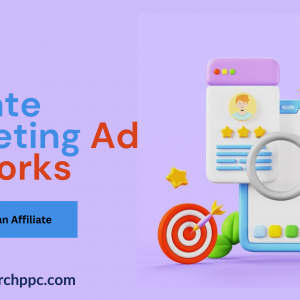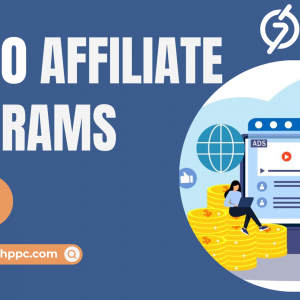Affiliate marketing ads have become an essential part of digital marketing, allowing brands to reach wider audiences and leverage the influence of affiliates to drive sales. At the core of these ads lies a powerful understanding of consumer psychology. By tapping into emotions, needs, and behavioral patterns, affiliate marketing ads can drive higher engagement, conversions, and loyalty. In this blog, we'll explore the psychology behind affiliate marketing ads, the tactics used to influence consumer behavior, and how to create effective ads that resonate with target audiences.
Become an Affiliate
What Are Affiliate Marketing Ads?
Affiliate marketing ads are promotional content created by affiliates on behalf of a brand. These affiliates earn commissions based on the conversions or sales generated through their referral links. The goal of these ads is to persuade the audience to take specific actions—whether it’s making a purchase, signing up for a newsletter, or visiting a website. To do so effectively, affiliates need to understand consumer motivations and craft ads that connect with their emotions and needs.
Why Psychology Matters in Affiliate Marketing Ads
Consumer psychology is the foundation of successful affiliate marketing ads. By understanding how and why people make decisions, affiliates and marketers can create ads that are more likely to capture attention, build trust, and drive action. Effective affiliate marketing ads rely on psychological principles such as reciprocity, social proof, scarcity, and authority to influence consumer choices. These principles aren’t just theoretical—they have been proven to impact buying behavior and can help affiliates create ads that are both compelling and effective.
Key Psychological Principles in Affiliate Marketing Ads
Reciprocity: Give to Receive
Reciprocity is a powerful psychological principle that suggests people are more likely to return a favor when they receive something first. In affiliate marketing, this principle can be used to create a sense of obligation in the audience.
How to Use Reciprocity in Affiliate Ads
- Exclusive Offers: Affiliates can provide exclusive discounts or promotions that create value for the audience, making them more likely to reciprocate by purchasing through the affiliate link.
- Free Content: By offering free, valuable content, such as an e-book or guide, affiliates can build trust and goodwill with the audience, which increases the chances of conversion.
Social Proof: The Power of Peer Influence
People tend to follow the actions and opinions of others, especially when they are uncertain. Social proof, such as testimonials, reviews, and user-generated content, is an effective way to build credibility and encourage conversions.
Implementing Social Proof in Affiliate Marketing Programs
- Testimonials and Reviews: Showcasing testimonials or reviews from satisfied customers can reassure potential buyers that the product is worth purchasing.
- User-Generated Content: Affiliates can share real-life experiences or stories that highlight the benefits of the product, making it relatable and authentic.
- Popularity Indicators: Mentioning the number of customers or followers who have benefited from a product adds to its credibility and attractiveness.
Scarcity and Urgency: Creating a Sense of Need
Scarcity and urgency are two principles that drive consumers to act quickly. When people believe a product is limited or that an offer is expiring soon, they are more likely to make a purchase.
Techniques to Create Scarcity and Urgency in Ads
- Limited-Time Offers: Display countdown timers or phrases like "limited time only" to prompt immediate action.
- Low Stock Alerts: Highlighting that only a few items remain in stock can push consumers to act fast.
- Exclusive Access: Mentioning that an offer is available exclusively to the audience can create a sense of exclusivity, encouraging quick responses.
Authority and Credibility: Building Trust
Consumers are more likely to trust and follow the recommendations of individuals or entities they perceive as credible. By establishing authority, affiliates can make their ads more persuasive and trustworthy.
Ways to Build Authority in Affiliate Ads
- Expert Endorsements: If the affiliate or the brand has an expert endorsement, mentioning it can increase credibility.
- Brand Reputation: Emphasizing the reputation or achievements of the brand can assure consumers of the product’s quality.
- Quality Content: Affiliates who consistently provide well-researched, valuable content establish themselves as reliable sources, which can positively influence their audience’s purchasing decisions.
Creating Compelling Affiliate Marketing Ads
Creating effective affiliate marketing ads involves a blend of creativity, strategy, and psychology. Here are some best practices to design ads that resonate with audiences and maximize conversions:
Crafting Effective Ad Copy
Ad copy is the primary tool for communicating the value of a product. By using persuasive language, affiliates can connect with the audience’s emotions and motivate them to take action.
Tips for Writing Engaging Affiliate Ad Copy
- Address Pain Points: Show that the product solves a specific problem the audience may be experiencing.
- Use Emotional Triggers: Tap into emotions such as happiness, curiosity, or fear of missing out (FOMO) to enhance engagement.
- Be Concise and Clear: Keep the message clear and easy to understand, highlighting the main benefits.
Choosing the Right Visuals
Visuals are essential in capturing attention and reinforcing the message of an affiliate ad. High-quality visuals that align with the brand can make ads more memorable and appealing.
Guidelines for Selecting Visuals
- Use Real-Life Photos: Showing real-life applications of the product can make it more relatable and credible.
- Consistent Branding: Visuals should reflect the brand’s style and color scheme to maintain consistency.
- Include Product Images: Clear images of the product help consumers visualize it, increasing the likelihood of conversion.
Tailoring Ads to Different Platforms
Affiliate marketing ads need to be optimized for the specific platform they are on, whether it's social media, websites, or email marketing.
Platform-Specific Ad Strategies
- Social Media: Use visually engaging images or videos and incorporate hashtags or tags to expand reach.
- Email Marketing: Craft personalized emails with concise, value-driven messages to capture readers’ interest quickly.
- Content Sites and Blogs: Utilize contextual ads and native advertising formats that blend seamlessly with the surrounding content.
Leveraging Affiliate Ad Networks
Affiliate ad networks provide a platform where affiliates can find brands and products to promote. By joining the best affiliate marketing networks, affiliates can access various tools and resources to optimize their campaigns.
Benefits of Using Affiliate Ad Networks
- Diverse Product Options: Affiliate networks allow affiliates to choose from a wide array of products, aligning with their niche and audience.
- Real-Time Tracking and Analytics: Networks offer tracking and analytics tools to help affiliates monitor their ad performance and adjust strategies as needed.
- Payment and Commission Management: Affiliate networks handle payments and commissions, simplifying the affiliate marketing process.
Choosing the Right Affiliate Ad Network
Selecting the best affiliate ad network is crucial for affiliate success. Affiliates should consider networks with:
- Reputable Brands: Working with recognized brands can enhance credibility and trust.
- Competitive Commission Rates: Higher commissions offer greater earning potential.
- User-Friendly Platforms: Networks with intuitive interfaces make campaign management easier.
Frequently Asked Questions (FAQs)
What is an affiliate marketing ad?
Ans: An affiliate marketing ad is a promotional piece created by an affiliate to advertise a product or service. Affiliates earn commissions based on the actions taken by consumers through their referral links, such as purchases or sign-ups.
Why is consumer psychology important in affiliate marketing ads?
Ans:Understanding consumer psychology helps affiliates create ads that resonate with the audience, tapping into their emotions, needs, and motivations. Psychological principles like social proof, scarcity, and reciprocity can significantly boost engagement and conversion rates.
How do affiliate ad networks work?
Ans: Affiliate ad networks connect affiliates with brands or merchants offering affiliate programs. These networks provide access to various products, track performance, and manage payments and commissions for affiliates.
What is social proof in affiliate marketing?
Ans: Social proof refers to the concept of influencing consumer behavior by showcasing the actions and opinions of others. In affiliate marketing, social proof can be achieved through customer reviews, testimonials, and user-generated content, building trust and encouraging conversions.
How can I create a sense of urgency in affiliate marketing ads?
Ans: You can create urgency by using phrases like “limited-time offer” or “only a few left in stock.” Additionally, countdown timers and low-stock notifications can motivate consumers to take immediate action.
What is the best affiliate marketing strategy for beginners?
Ans: For beginners, focusing on a specific niche, providing valuable content, and building an engaged audience can be effective strategies. Additionally, using psychological principles, such as reciprocity and social proof, can enhance ad effectiveness.









